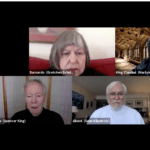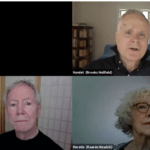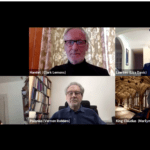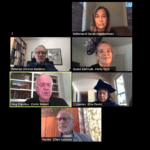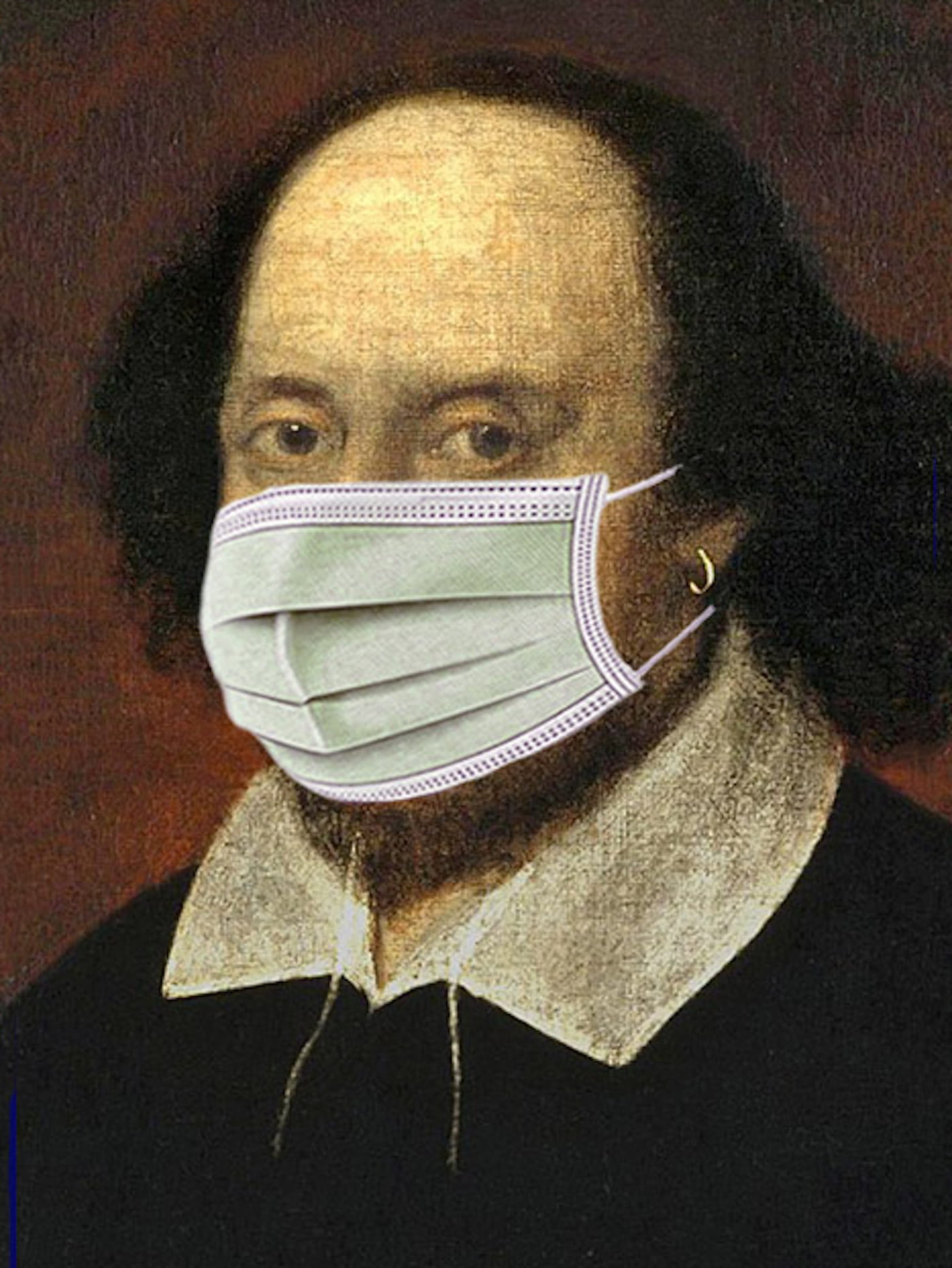 I’m honored to be teaching alongside my friend Brian Kurlander this semester, approaching Hamlet from many perspectives.
I’m honored to be teaching alongside my friend Brian Kurlander this semester, approaching Hamlet from many perspectives.
Summer, 2020: Hamlet with Emeritus Faculty
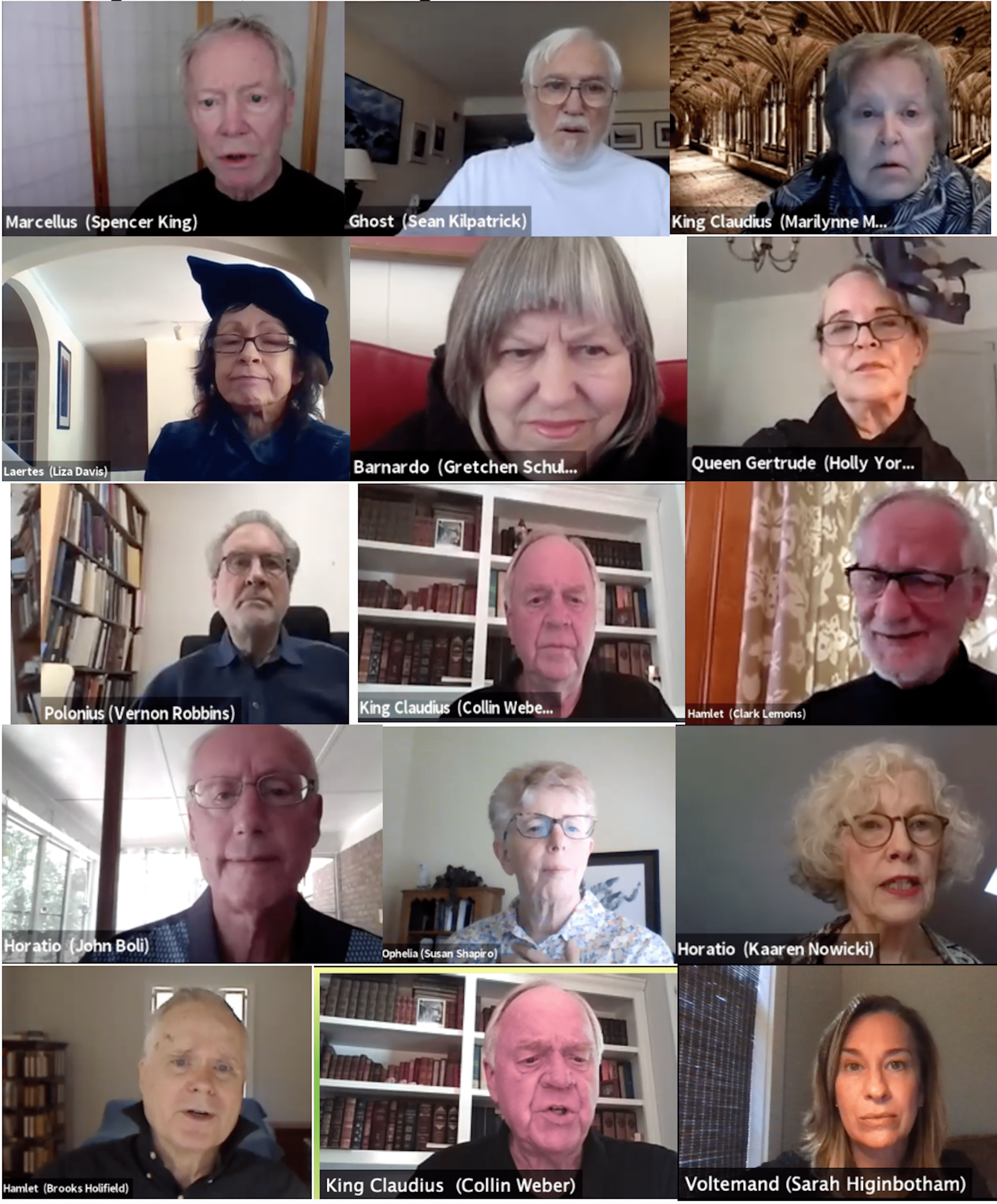
As I followed my Emeritus College colleagues reading Hamlet, I was moved by their presence. Each of these colleagues personalized the play for me — made the Ghost touchable, nuanced the personality of Hamlet, raised up the poignancy of Ophelia. Hamlet came alive.
Why was that? Perhaps it was my colleagues’ depth born in the second chapter of our lives that imbued the reading and deepened my willingness to engage the play with a new lens. They brought a lived experience in their interpretations of their respective characters, and I am grateful beyond measure.
—Patricia Owen-Smith, Professor Emerita of Psychology and Women’s Studies
Fourteen distinguished faculty read the first act of Hamlet on Monday, July 13, to an audience of Emory’s Emeritus College. They mined their own rich lives to play their characters, and inspired me with their humor, their self-discipline, their study of the play, their willingness to master Zoom, as well as their warm hospitality to me, a first-year Assistant Professor of Shakespeare at Oxford College. It was a highlight of my summer. Also, it was just a lot of fun!
The cast was comprised of scholars who have made significant contributions to the fields of French, New Testament, Medicine, Theater, Sociology, Nursing, Surgery, Dermatology, and English during their careers. Each brought their intellects and their souls to the reading. And somehow, The Tragedy of Hamlet took on added depth as I listened to the nuanced meaning they infused in every line.
Cast, in order of appearance:
Gretchen Schulz, Barnardo
Kaaren Nowicki, Francisco and Horatio
Marilynne McKay, Horatio and Claudius
Spencer King, Marcellus
Sean Kilpatrick, Ghost
Collin Weber, Claudius
Holly York, Gertrude
Vernon Robbins, Polonius
Liza Davis, Laertes
Clark Lemons, Hamlet
John Boli, Horatio
Susan Shapiro, Ophelia
Brooks Holifield, Hamlet
How do you coordinate fourteen professor-actors on Zoom, synchronizing all the details seamlessly? With Gray Crouse and Dianne Brecht handling all the technology and Gretchen Schulz – my predecessor at Oxford College — guiding me throughout. Gray was our Prospero, meticulously orchestrating every element of the two rehearsals and the production with calm, professional savvy. Not that there weren’t tense moments: at three minutes to showtime, Horatio’s Zoom camera settings froze, King Claudius’s computer couldn’t connect to the webinar, and the Ghost was experiencing some technical difficulties with his camera. We are all growing used to trying to function within Zoom’s constraints and sudden glitches, including me and all of my Oxford College undergraduates during our remote classes. But Gray miraculously solved every problem.
In this isolating period of our lives, as the pandemic limits our contact with each other, the play fostered a surprising sense of real proximity. Brooks Holifield said “it was a delight to collaborate with other faculty members.” Susan Shapiro noted that “I approached it without any clear idea of what it meant to ‘read Ophelia,’ and came away having had a truly eye-opening experience. I would do it again in a heartbeat.” Vernon Robbins said reading the character of Polonius helped him reflect on his own life as a father.
Bhagirath Majmudar observed that while the actors could only express themselves through their voices – constrained by Zoom – they all “circumvented their restriction and gave a wonderful performance.” Dr. Majmudar conjectured that such a production would be deeply beneficial to medical and psychiatry students, who could gain new insights through Shakespeare’s tragedy.
During the Q & A that followed, many people shared the hundreds of versions of Hamlet they have seen in their lifetimes: from Richard Burton’s 1964 film to Benedict Cumberbatch’s 2019, from small college productions to the Royal Shakespeare Company, from an all-female cast in Little Five Points to a Danish version at Elsinore, as described by John Boli:
I had the good fortune to see a performance of Hamlet in the castle at Elsinore, in Danish. I was living in Helsingborg, Sweden, at the time; Helsingborg lies just three kilometers across the sound from Elsinore (Helsingør). I knew Swedish well at the time but it doesn’t help much in understanding Danish! The production was in the evening — one of those never-ending Scandinavian summer evenings — and it took place outside, in the courtyard and on the ramparts of the castle. A visually striking and most enjoyable event.
And Susan Shapiro shared another memory:
the most memorable production of Hamlet I ever saw was also the first. I grew up on Long Island, and in our senior year (1967-1968) we were taken to a Papp production in NYC starring, of all people, the late Cleavon Little. I don’t recall many of the details; what I do recall was being absolutely transported by the staging (it was staged as if Denmark was an African country), and in my memory, Hamlet entered at some point (first time? later? it was a long time ago) sitting upright in a coffin!
Brooks saw his son perform the character of Horatio at Duke University and Spencer King saw his granddaughter as Polonius in Hendersonville, NC. In a play about how families can hurt each other, I was especially moved by how the emeritus faculty talked openly about their children and grandchildren as well as their evident friendship with each other: they brought such a bond of cohesion, somehow expressed even through our little Zoom boxes.
The Emory Emeritus College vision statement indicates that it seeks to “advance the intellectual and creative interests of its members” and to “maintain their social connections with university colleagues.” I saw that vision lived out and count myself fortunate to have joined them.
Spring, 2020: From Archives to Zoom
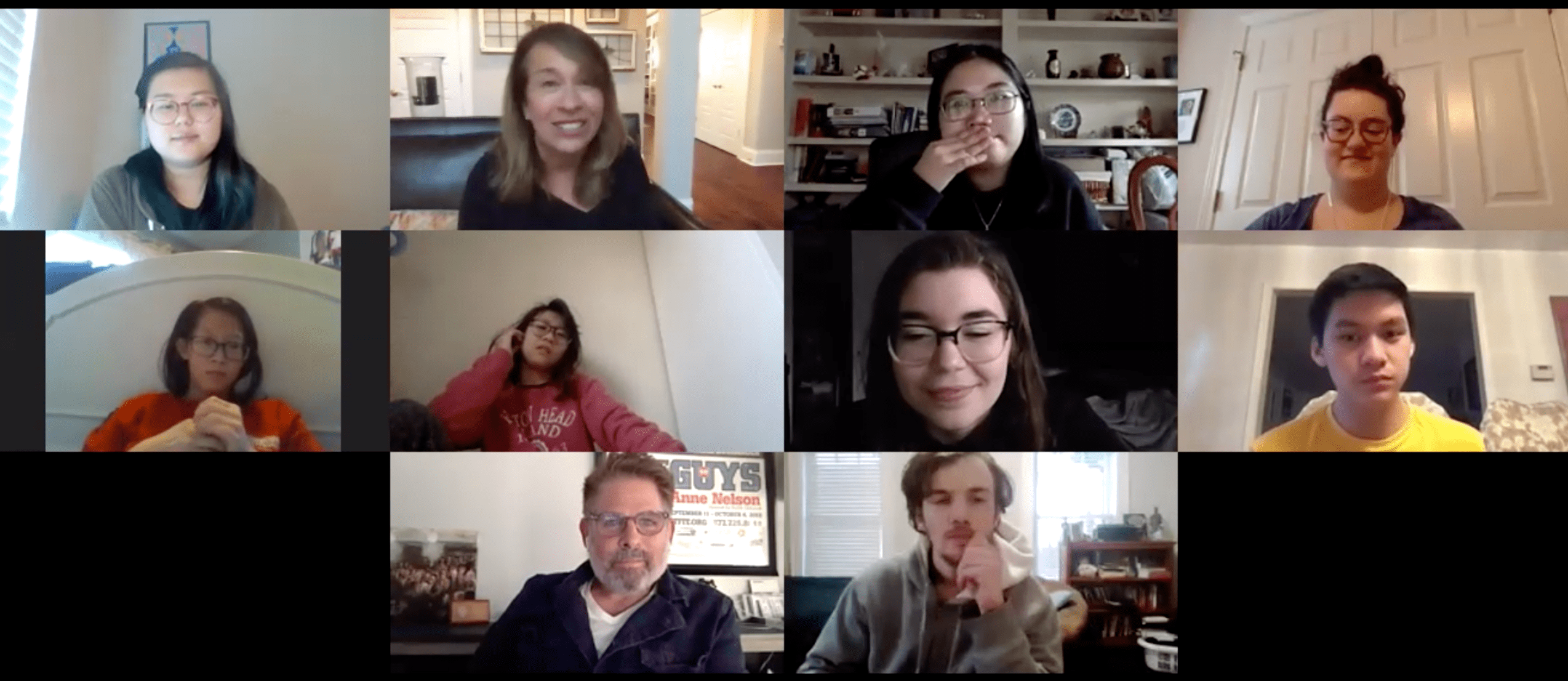
Our semester began in a familiar pattern of socratic classes, poetry readings, faculty meetings, writing, theater productions, and events — with a special emphasis on transcribing early modern texts for my literature students in English 255. I’m inspired by how quickly my students adapted to recorded lectures, discussion forums, alternative assignments, endless emails, and zoom sessions, like this one featuring actor Brian Kurlander. I didn’t know it was possible to be any more impressed by my students. But their fierce, creative, determined kindness and resiliency fill me with awe, once again.
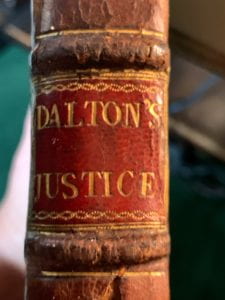
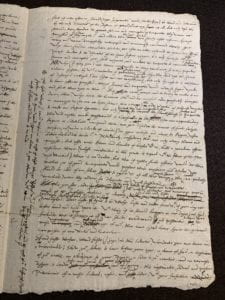
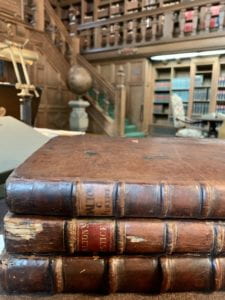
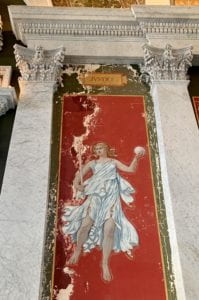

Fall, 2019: Human Rights and Human Dignity
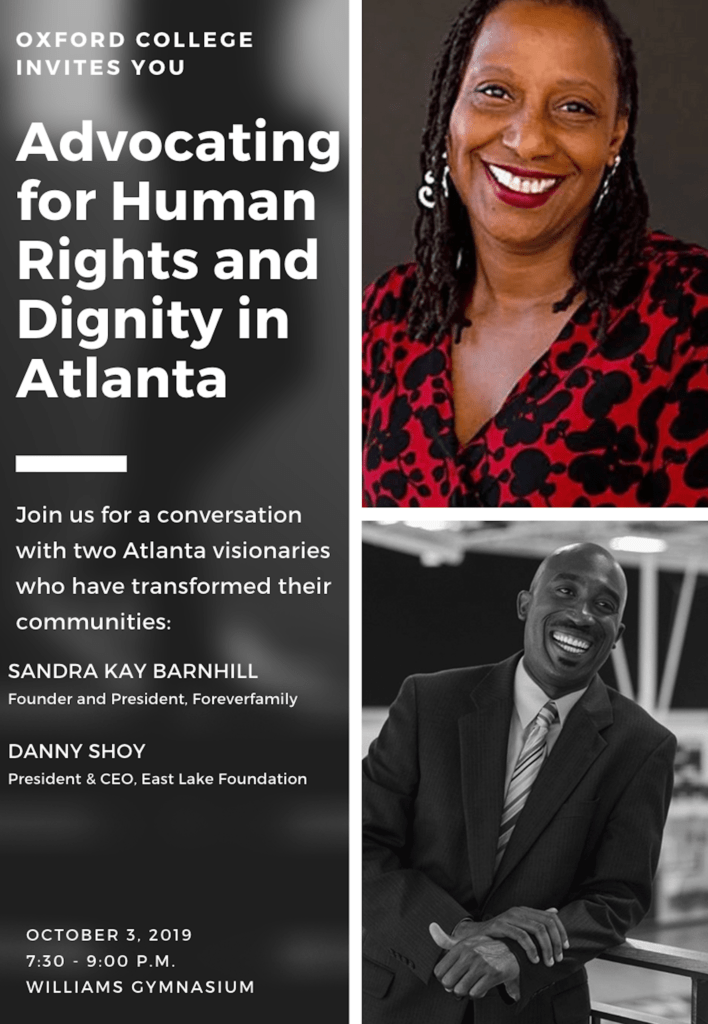
Join us for a conversation with two Atlanta visionaries who have transformed their communities: October 3, 2019, 7:30 p.m. in Williams Hall. Special guest Judge Horace Johnson.
Sandra Barnhill is an attorney, founder, and national president of Foreverfamily, a nonprofit agency she created in 1987 to diminish the impact of a parent’s incarceration on their children.
Danny Shoy (95C) is President & CEO of the East Lake Foundation, equipping east Atlanta citizens to build better lives for themselves and future generations through a holistic approach to community revitalization that incorporates mixed-income housing, cradle-to-college education and community wellness.
Sandra and Danny have been nationally recognized for their advocacy in the areas of criminal justice, housing, and education equity reform.
Spring, 2019: British Literature from Beowulf to David Mitchell

This semester I will be teaching the entire canon of British Literature, from about 900-2014. I cannot imagine a greater professional privilege. English 255 surveys medieval and early modern literature, covering Beowulf, Geoffrey Chaucer’s Canterbury Tales, Thomas More’s Utopia, Edmund Spenser’s Faerie Queene, William Shakespeare’s Twelfth Night, and the sonnets, sermons, speeches, and lyric poems of the early and late English Renaissance.
English 256 then picks up at the English Restoration and will cover Romantic, Victorian, and modern authors such as Samuel Taylor Coleridge, William Blake, William Wordsworth, Percy Shelley, John Keats, Thomas Carlyle, the Brontës, Gerard Manley Hopkins, and George Eliot’s masterpiece Middlemarch.
Both courses will read Margaret Cavendish, the seventeenth-century scientist and fiction writer pictured above. Faced with a world that didn’t accept her as an intellectual, she created her own world:
I am not Covetous, but as Ambitious as ever any of my Sex was… [so while] I cannot be Henry the Fifth, or Charles the Second; yet, I will endeavor to be, Margaret the First: and, though I have neither Power, Time nor Occasion, to be a great Conqueror, like Alexander, or Cesar; yet, rather than not be Mistress of a World, since Fortune and the Fates would give me none, I have made one of my own.
I look forward to a semester in which we discover the literary worlds that have been created for the last 1100 years.
Fall, 2018: Justice and Literature
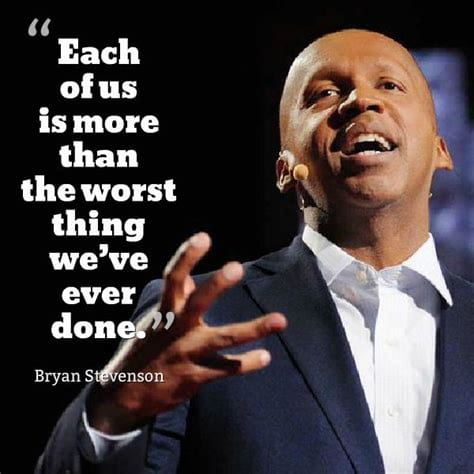
This semester, Oxford students are reading Bryan Stevenson’s Just Mercy and have the opportunity to hear him speak along with Anthony Ray Hinton, whom Stevenson helped to exhonerate. My Shakespeare students are thus reading Shakespeare through the lens of law and examining aesthetic represenations of justice. Dr. Daniel LaChance will visit our class to discuss legal personhood and Rachel Chmiel to talk about her eighteen years’ experience representing people on Georgia’s death row. I’m also excited to be mentoring Katie Pleiss as an Oxford Research Scholar, studying the death penalty, mass incarceration, and criminal justice reform. We are planning a road trip to the National Memorial for Peace and Justice in Montgomery, AL.
